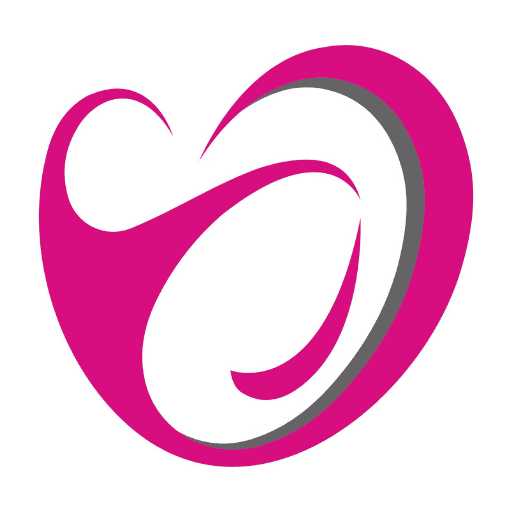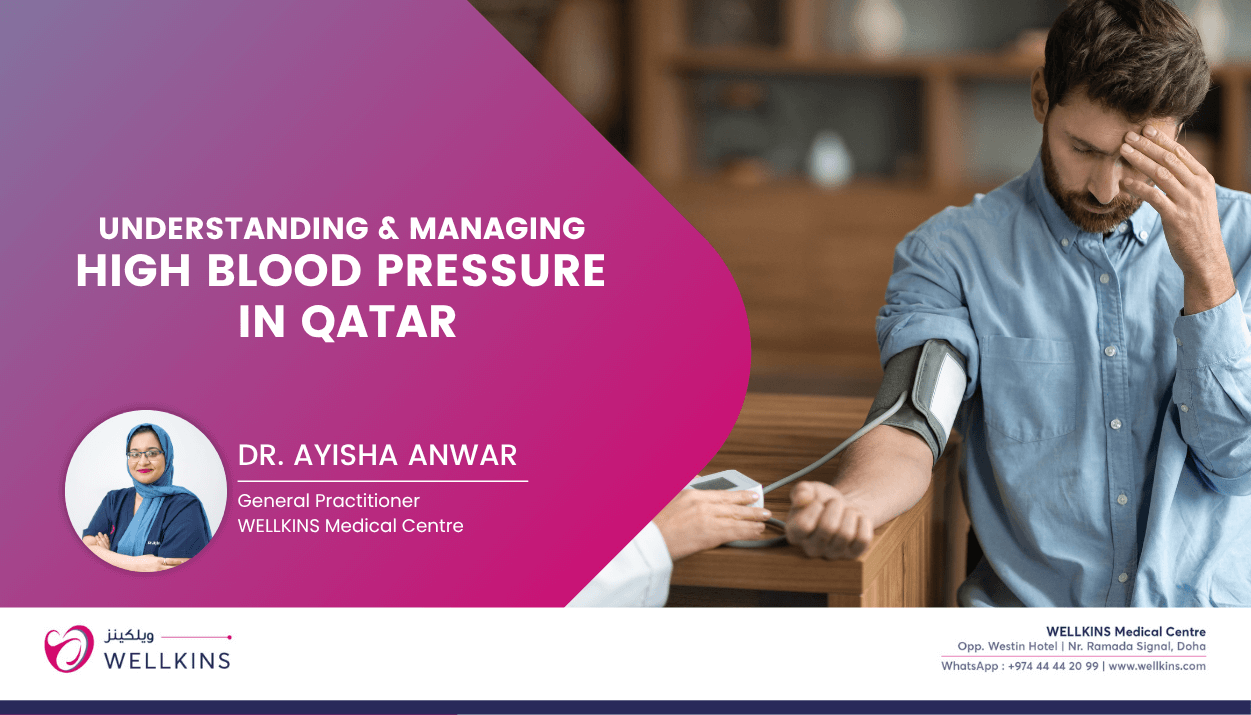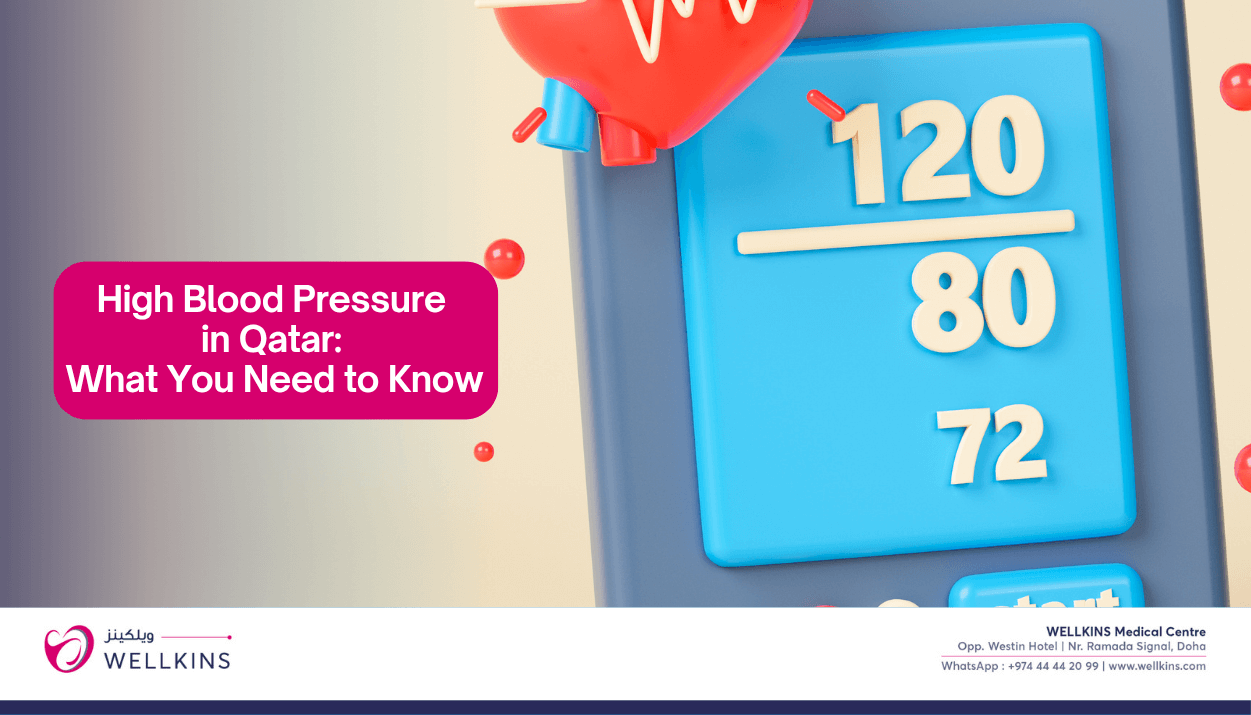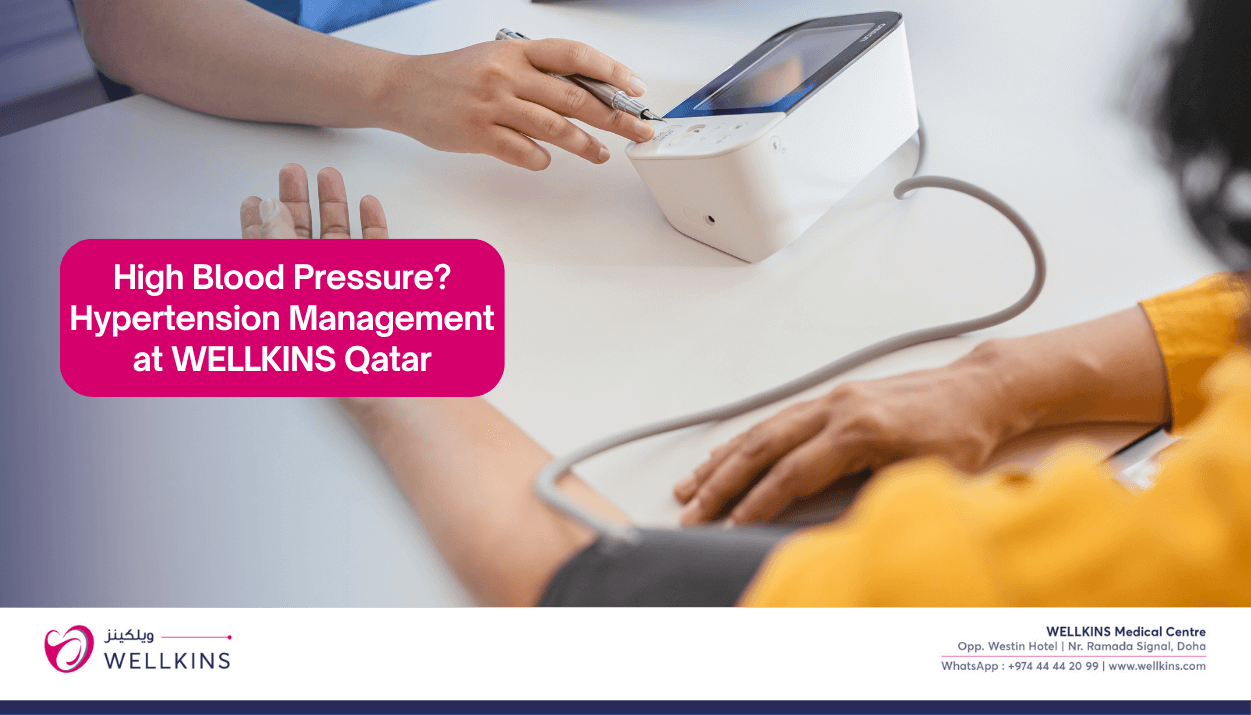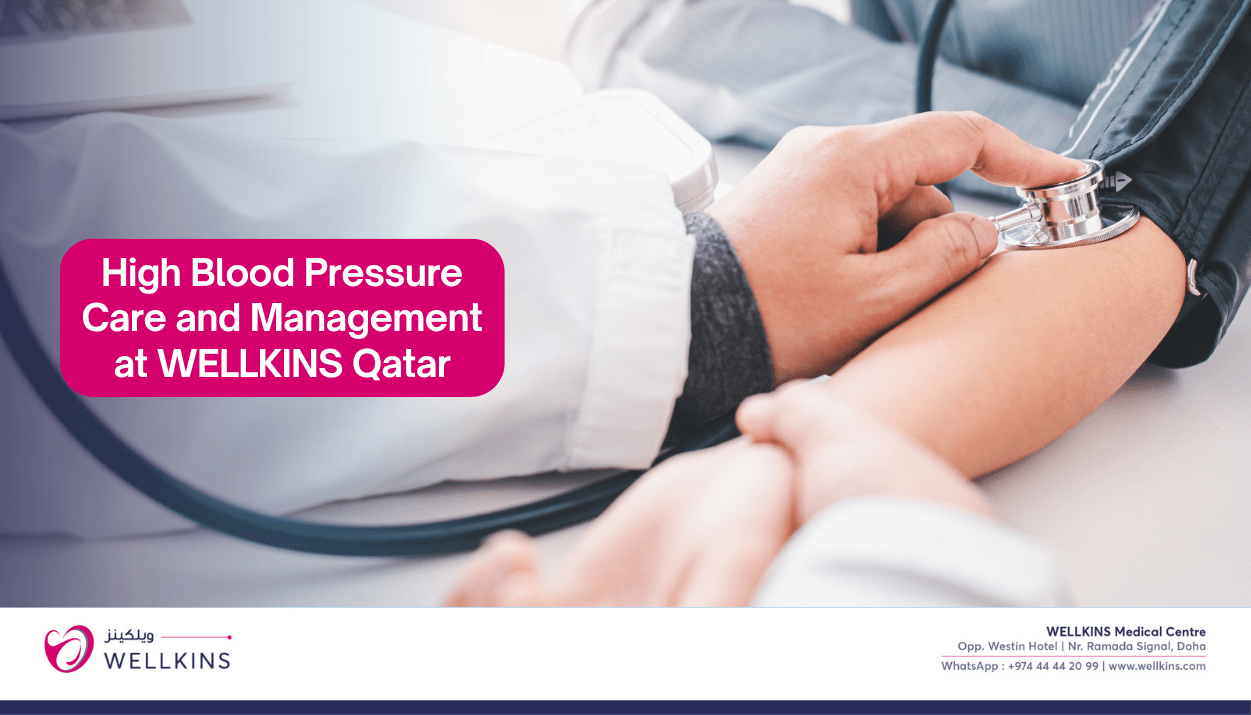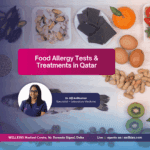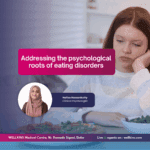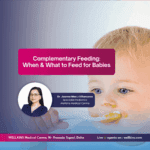Author: Dr. Ayisha Anwar, (General Practitioner – WELLKINS Medical Centre)
Hypertension, more commonly known as high blood pressure, is a pervasive global health challenge, impacting over a billion people worldwide. Often dubbed the “silent killer,” its insidious nature lies in its tendency to present with no discernible symptoms in its early stages, while quietly inflicting damage that can lead to devastating health complications if left unaddressed. This comprehensive guide will delve into the intricacies of hypertension, from its fundamental definition to its causes, symptoms, complications, diagnosis, and crucial management strategies.
Hypertension is a chronic medical condition where the force of blood against the walls of your arteries remains consistently elevated. Think of your arteries as a complex network of pipes carrying blood from your heart to every part of your body. When the pressure inside these pipes becomes too high, it puts undue strain on your cardiovascular system, leading to a cascade of potential health issues over time.
For most healthy adults, a normal blood pressure reading is typically considered to be less than 120/80 mmHg.
Helps prevent or manage high blood sugar, high blood pressure, and unhealthy cholesterol levels, reducing hospitalizations.
Elevated Blood Pressure: Systolic between 120-129 mmHg and diastolic less than 80 mmHg. While not yet hypertension, this indicates a higher risk and calls for lifestyle adjustments.
Stage 1 Hypertension: Systolic between 130–139 mmHg or diastolic between 80–89 mmHg. At this stage, doctors often recommend lifestyle changes and may consider medication based on individual risk factors.
Stage 2 Hypertension: Systolic above 140 mmHg or diastolic above 90 mmHg. This stage usually necessitates a combination of lifestyle modifications and medication to bring blood pressure under control.
Hypertensive Crisis: Systolic over 180 mmHg and/or diastolic over 120 mmHg. This is a medical emergency requiring immediate attention.
Causes and Risk Factors:
Hypertension can broadly be categorized into two main types:
Primary (Essential) Hypertension: This is by far the most common type, accounting for about 90-95% of all cases. In primary hypertension, there is no identifiable, direct cause. Instead, it develops gradually over many years, often influenced by a complex interplay of genetic predispositions and lifestyle factors.
Secondary Hypertension: This type is less common but has a discernible underlying cause. It often appears suddenly and typically results in higher blood pressure than primary hypertension. Causes of secondary hypertension can include:
Kidney disease: Kidneys play a vital role in blood pressure regulation.
Hormonal disorders: Conditions like thyroid problems (hyperthyroidism) or adrenal gland tumors (Cushing’s syndrome, pheochromocytoma) can affect blood pressure.
Obstructive sleep apnea: Repeated pauses in breathing during sleep can raise blood pressure.
Certain medications: Decongestants, oral contraceptives, some pain relievers (NSAIDs), and even some illicit drugs can elevate blood pressure.
Narrowing of the aorta (coarctation of the aorta): A birth defect that constricts the main artery leaving the heart.
Beyond these direct causes, several factors significantly increase your risk of developing hypertension:
Family History: If your parents or close relatives have hypertension, your risk is inherently higher due to genetic predispositions.
Age: The risk of hypertension generally increases with age. Arteries tend to stiffen and narrow over time, contributing to higher pressure.
Obesity: Excess weight significantly strains your heart and blood vessels, increasing blood volume and making your heart work harder.
Sedentary Lifestyle: Lack of regular physical activity contributes to weight gain and can directly impact blood vessel health.
High Sodium Intake: Sodium causes your body to retain fluid, which can increase blood volume and, consequently, blood pressure.
Excessive Alcohol Consumption: Heavy and regular drinking can damage blood vessels and interfere with medications.
Chronic Stress: While the direct link is complex, prolonged stress can lead to temporary blood pressure spikes and unhealthy coping mechanisms that contribute to hypertension.
Smoking: Nicotine constricts blood vessels and damages their lining, accelerating hardening of the arteries.
Poor Diet: Diets lacking in fruits, vegetables, and whole grains, and high in processed foods and saturated/trans fats, contribute to overall poor cardiovascular health.
Certain Chronic Conditions: Diabetes and high cholesterol are often linked to hypertension due to their impact on blood vessel health.
Understanding Symptoms of hypertension:
One of the most dangerous aspects of hypertension is its often asymptomatic nature. For many years, you can have high blood pressure without experiencing any noticeable signs or symptoms. This is precisely why it’s termed the “silent killer” – it can be silently damaging your vital organs without your knowledge.
When symptoms do appear, it typically signifies that blood pressure has reached dangerously high levels, often indicating severe and potentially life-threatening complications. These may include:
Severe Headaches: Persistent and throbbing headaches, especially in the morning.
Dizziness and Lightheadedness: A feeling of unsteadiness or fainting.
Nosebleeds: Recurrent or unexplained nosebleeds.
Shortness of Breath: Difficulty breathing, especially during exertion.
Chest Pain: A squeezing or pressure sensation in the chest.
Vision Problems: Blurred vision or double vision.
It is crucial to reiterate: waiting for symptoms to appear is a dangerous approach. By the time these symptoms manifest, significant damage may have already occurred. Regular blood pressure checks are the only reliable way to detect hypertension early and intervene before serious complications arise.
Diagnosing hypertension is straightforward and painless. It involves a simple blood pressure reading taken using a sphygmomanometer (blood pressure cuff). Your doctor or a healthcare professional will typically take several readings during different appointments to confirm a diagnosis. This is because a single high reading could be due to temporary factors like stress or caffeine.
Sometimes, your doctor might recommend ambulatory blood pressure monitoring (ABPM). This involves wearing a portable device that measures your blood pressure at regular intervals over a 24-hour period, providing a more accurate picture of your blood pressure fluctuations during your daily activities and sleep.
Management and Treatment Strategies for High Blood Pressure:
Managing hypertension is a lifelong commitment, but it is highly effective in preventing complications. Treatment often involves a multi-pronged approach, starting with fundamental lifestyle changes and progressing to medication when necessary.
1)Lifestyle Changes: Your First Line of Defense
For many, especially in the earlier stages of hypertension, significant blood pressure reduction can be achieved through consistent lifestyle modifications. These are not just recommendations; they are vital components of any hypertension management plan:
* Adopt a Heart-Healthy Diet (The DASH Diet): The Dietary Approaches to Stop Hypertension (DASH) diet is specifically designed to lower blood pressure. It emphasizes:
* Plenty of fruits and vegetables: Rich in potassium, which helps counteract the effects of sodium.
* Whole grains: Provide fiber and nutrients beneficial for heart health.
* Low-fat dairy products: Important source of calcium.
* Lean proteins: Fish, poultry, beans, and nuts.
* Limit saturated and trans fats, cholesterol, and sugary drinks.
* Reduce Sodium Intake: This is paramount. Most processed and restaurant foods are loaded with sodium. Aim for less than 2,300 mg of sodium per day, and ideally closer to 1,500 mg, especially if you have existing hypertension. Learn to read food labels and use herbs and spices for flavor instead of salt.
* Engage in Regular Physical Activity: Aim for at least 150 minutes of moderate-intensity aerobic activity per week (e.g., brisk walking, swimming, cycling) or 75 minutes of vigorous-intensity activity. Incorporate strength training exercises at least twice a week. Regular exercise strengthens your heart, helps manage weight, and improves blood vessel elasticity.
* Achieve and Maintain a Healthy Weight: Losing even a small amount of weight (5-10% of your body weight) can significantly lower blood pressure. Work with your doctor or a dietitian to set realistic weight loss goals.
* Limit Alcohol Consumption: If you drink alcohol, do so in moderation. For men, this means up to two drinks per day; for women, up to one drink per day. Excessive alcohol intake can raise blood pressure and interfere with medication effectiveness.
* Quit Smoking: Smoking is one of the most damaging habits for your cardiovascular system. Quitting smoking immediately begins to improve your blood pressure and overall heart health. Seek support and resources if you need help to quit.
* Manage Stress: Chronic stress can contribute to hypertension. Practice stress-reduction techniques such as mindfulness, meditation, yoga, deep breathing exercises, spending time in nature, or engaging in hobbies you enjoy.
* Get Enough Quality Sleep: Poor sleep can negatively impact blood pressure. Aim for 7-9 hours of quality sleep per night. If you suspect sleep apnea, discuss it with your doctor.
2)Medications: When Lifestyle Alone Isn’t Enough
When lifestyle changes are insufficient to bring blood pressure to target levels, or for individuals with higher stages of hypertension, medication will be prescribed. There are several classes of antihypertensive medications, each working through different mechanisms.Your doctor will work with you to find the most effective medication regimen with the fewest side effects. It’s crucial to take your medications exactly as prescribed and to never stop or adjust them without consulting your doctor. Treatment for hypertension is almost always lifelong, and your medication regimen may need to be adjusted over time based on your readings and overall health.
Prevention of Hypertension
While certain risk factors like age and genetics are beyond our control, a significant portion of hypertension cases are preventable through conscious lifestyle choices. Taking proactive steps can drastically reduce your risk:
* Maintain a Healthy Weight: This is a cornerstone of prevention.
* Eat a Balanced, Low-Sodium Diet: Prioritize whole, unprocessed foods.
* Stay Active: Incorporate regular physical activity into your daily routine.
* Avoid Tobacco Products: Quitting smoking is one of the most impactful steps you can take.
* Limit Alcohol Consumption: Adhere to recommended guidelines for moderate drinking.
* Monitor Your Blood Pressure Regularly: Even if you feel healthy, get your blood pressure checked at least once a year, or more frequently if you have risk factors or a family history. Consider home blood pressure monitoring for greater awareness.
Final Thoughts: Awareness is Key to a Heart-Healthy Life
By understanding the risks, embracing healthy lifestyle choices, and adhering to medical advice, you can effectively manage hypertension, safeguard your heart, and live a longer, healthier life. Your heart will thank you for it.

